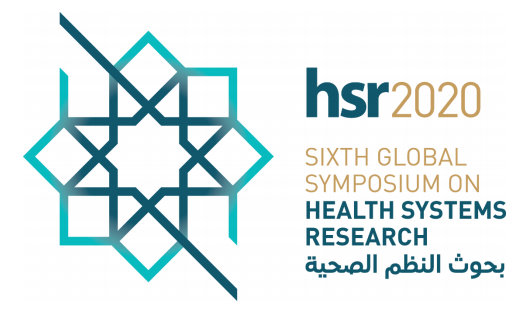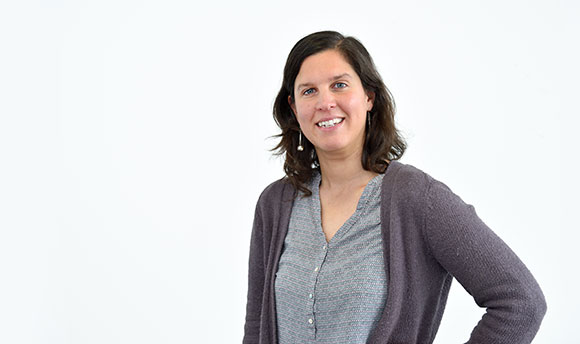Seeing the clinic as a ‘whole system’: challenges and opportunities of clinic-based ethnography in HPSR
February 24th, 15.00 - 16.15 GMT
Dr Karina Kielmann
Summary of the Planned Session
Both site and vehicle of primary care, the ‘clinic’ presents a distinctive domain of interest for HPSR. Applying a ‘whole systems’ approach to clinic ethnographies conducted in Southern Africa and India, our panel introduces challenging questions around ethics, positionality, voice and the quest for ‘evidence’ driving programme and policy needs.
1. Session description
Our panel on ‘doing’ clinic-based ethnography in health policy and systems research (HPSR) introduces challenging questions around ethics, positionality, and voice – but also reflections on how ethnographic ‘evidence’ is constructed to meet the pragmatic needs of programme and policy.
The clinic – as both physical site, and primary vehicle for delivery of health care - presents a domain of singular interest to health systems researchers. Clinics are distinctive 'fields', not only through their spatial and temporal demarcation but because they are governed, in principle, by highly standardised sets of rules and normative practices. Research on clinic access, utilisation, or ‘readiness’ to implement interventions has tended to isolate specific components or relations of care (Wolf et al 2012). However, as anthropologists have argued, interventions are neither value-free, nor delivered on ‘blank slates’. Clinics have permeable boundaries: their functionality and working lives are continually negotiated, in practice, by social dynamics that exist outside of the clinic (Street & Coleman 2012).
Increasingly, a ‘whole systems’ approach is espoused as a way of analysing the dynamics of the interdependent elements of complex systems of health care delivery. Applied to clinics, a ‘whole systems’ approach demands both theoretical attention and methodological depth: conducting ethnographic research in clinics allows for more formalised, surface-level data collection of specific phenomena to be grounded in observations, stories, impromptu notes and intuitive insights into ‘what is going on’, prompting deeper understanding of the production and contestation of authoritative knowledge, rationality, and experience of care through everyday work practices and institutional culture.
References
1. Cupit C, Mackintosh N, Armstrong N (2018) Using ethnography to study improving healthcare: reflections on the ‘ethnographic’ label. BMJ Quality & Safety 27:258-260.
2. Street, A. and Coleman, S. (2012) Introduction: Real and imagined spaces. Space and Culture 15 (1). pp. 4-17. ISSN 1206-3312
3. Wolf, A., Ekman, I. & Dellenborg, L. (2012) Everyday practices at the medical ward: a 16-month ethnographic field study. BMC Health Services Research 12, 184 doi:10.1186/1472-6963-12-184
2. Session purpose and key objectives
In this panel, we examine the role of clinic-based ethnography to fulfil a ‘whole systems’ approach in addressing critical health systems and policy questions. We encourage our audience to reflect with us on the challenges and opportunities for conducting, analysing, and presenting results from ethnographic work in health systems and policy fora. Our objectives are 1) to present recent and on-going experience with conducting ethnographic work in HPSR and 2) to facilitate provocative and constructive exchange on methodological aspects of fieldwork, analysis, and dissemination.
3. Session contributors
The session brings together individuals with experience, passion, and expertise in the application of ethnographic method to HPSR. We have all conducted clinic-based fieldwork and share an interest in how clinic space, infrastructure, and organisational culture shape the everyday interactions, practices, and moral dimensions of care. In this session, we share our insights but also ask the audience: what opportunities are gained when adopting a ‘whole systems’ approach? What compromises are made when pragmatic solutions are required in time frames and formats that may be at odds with the ethnographic method?
Karina Kielmann is Associate Professor at the Institute of Global Health and Development (Queen Margaret University, Edinburgh); she is a medical anthropologist examining how health systems can become more responsive and accountable to individuals living with HIV, TB, and drug-resistant TB. Hayley MacGregor is a South African medical doctor and anthropologist based at the Institute of Development Studies, University of Sussex. Her work centres on human rights discourses and citizen mobilisation in the context of health provisioning, and the ethnography of biomedical research and health technologies.
Priya Das and Karima Khalil work with Oxford Policy Management in New Delhi, India: Priya is a social anthropologist working on policy and research in the development sector in India, with a specific focus on women and girls’ empowerment. Karima is a public health physician with 25 years’ experience of research on facility-based maternity care services in LMICs.
Bregje de Kok is Assistant Professor in Anthropology at the University of Amsterdam. Her research focuses on reproduction, maternal health and care in sub-Saharan African settings.
Virginia (Ginny) Bond is a social anthropologist and Associate Professor based overseas for LSHTM, UK at ZAMBART, a research institution in Lusaka, Zambia; she has extensive experience of conducting ethnographies of TB and HIV care. Janet Seeley is Professor of Anthropology and Health at the London School of Hygiene and Tropical Medicine; she has worked since the late 1980s on HIV across the life course and the impact of the epidemic on communities and people’s lives and livelihoods.
4. Session format and flow
The session will be co-chaired and introduced by Kielmann and MacGregor. Following four short presentations intended to act as 'catalysts', Seeley will briefly comment and facilitate a fishbowl discussion raising critical questions emerging from the experience of conducting clinic-based ethnography in HPSR. These might include, for example: (a) representation of power and voice; (b) ethical and moral dilemmas (c) researchers’ positionality and boundaries and (d) transforming ethnography into ‘evidence’ for programmes and policy.
1. A Day in the Life of Clinic X: introduction, overview and objectives of the session (8 min) (Kielmann & MacGregor)
2. Four papers (10 min presentation + 3 min clarification questions) each
- Paper 1: MacGregor and Kielmann
- Paper 2: Das and Khalil
- Paper 3: de Kok
- Paper 4: Bond and Seeley
3. Discussant (Seeley) comments and raises questions (5 min); set-up and explanation of fishbowl (5min) and discussion
5. Session abstracts
Paper 1: Clinic Ethnography and the Organisation of Care: Examining the ‘Ideal Clinic’ in South Africa (Macgregor and Kielmann)
In South Africa, recent implementation of the ‘Ideal Clinic’ initiative has shifted dimensions of care at primary level. Our recent projects with an HSPR focus explore care for HIV and tuberculosis in this setting, including modalities of decentralized and differentiated care for HIV and DR-TB, and implementation of clinic-based infection prevention & control measures to reduce nosocomial DR-TB transmission. We reflect on the role of clinic ethnography in these projects to explore, in a fine-grained way, the ‘whole system’ and culture of clinics, organization and experiences of care, and disjunctures between ideal policies and their adaptations at the coalface.
Paper 2: Understanding the Why’s: A Facility Ethnography in Bihar, India (Das and Khalil)
Our paper draws on on-going clinic ethnography conducted within an initiative to strengthen maternity services in primary care facilities in Bihar, India. Approaching facilities as complex adaptive systems, we outline the interconnectedness and dynamics between less visible, everyday forms of providers’ formal and informal power, informal management practices that accrue from these forms of power and sub-optimal labour and delivery services. Focusing on intangible software, we consider the (mis)alignment of interventions to strengthen facilities with the conditions and context in which they are implemented. We further outline methodological challenges of real-time data collection through embedded research in busy rural health facilities.
Paper 3: Converging Logics in the Clinic: The Case for Ethnography (de Kok)
Ethnography’s ability to illuminate context, meanings, and what people do rather than what they say is well known. However, drawing on recent maternal health studies conducted in Malawi, I will show that it can offer more to health systems research. Long(er) term engagement, unstructured observations and conversations, paired with conceptual lenses, enables identification of multiple logics shaping clients’ and providers’ behaviours. Clinics are biomedical and social spaces; care is shaped by existing norms, social relationships, actors’ interests, and ‘organic’ forms of accountability. These co-shape behaviours prescribed by health policy or clinical guidelines; thus affecting their implementation and health system functioning.
Paper 4: ‘Being seen’ at the Clinic: Visibility and Stigma: Linked to Accessing HIV Clinic Services in Zambia and South Africa, the HPTN 071a stigma study (Bond and Seeley)
Contact with demarcated clinic services for certain stigmatised health conditions is both necessary and carries a social risk for clients of ‘being seen’ by others. In 2015-16, using ethnographic principles, we conducted research on HIV related stigma in 21 government health facilities in Zambia and South Africa. In-depth interviews with 114 health workers, using maps of the facility, combined with structured observation of clinic places accessed by HIV clients, established the unwanted visibility of demarcated HIV services, distinctive client flow and material items, and how thoughtful and sensitive adjustments could enhance client privacy and access alongside diminishing stigma.





